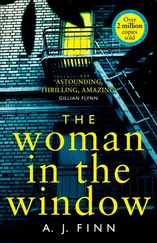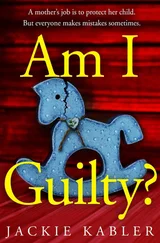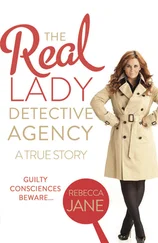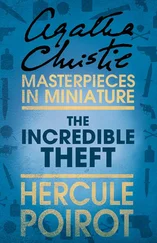1 ...7 8 9 11 12 13 ...17 ‘That’s absolutely right. One can draw a moving thing, of course one can, but one isn’t able to study it with as much care.’ We pick our way over a twisted tree branch. The children are used to coming this way for they step over it easily, while I am obliged to stop and adjust my skirt. ‘Tom found a dead fox,’ says Edmund. He collects a stick and pokes the ground with it. ‘He’s always finding dead foxes.’
‘Edmund!’ Constance covers her ears.
‘It’s all right, Constance.’ I smile. ‘Nature is red in tooth and claw.’
‘I don’t like it.’
‘Could I draw a dead fox?’ says Edmund.
‘You could if you wanted. But it’s rather morbid, don’t you think?’
‘But I could study it, in detail, then, as you say. It wouldn’t be able to get away from me. It wouldn’t be able to run away.’
‘True. But when you looked at your picture afterwards, you wouldn’t think of the fox as living, would you? You wouldn’t remember how clever you were to reproduce its detail as it rushed through the wood. You’d remember it as a body.’
‘And you’d hate to look at it,’ says Constance. ‘It would make you sad.’
‘I suppose,’ says Edmund. A neat frown puckers his childish brow. ‘But Father has his case of birds – those stuffed crows on the landing. They used to scare us, didn’t they, Connie? We’d run past them with our eyes shut in case they jumped out and pecked us! People like to look at those, and that’s the same thing, isn’t it?’
I spy a place for us to sketch, a soft clearing, surrounded by flora.
‘It depends on the person,’ I say. ‘Everybody likes different things. Hence the multiplicity of art.’
‘What does multiplicity mean?’
‘A big collection, full of variety.’
‘ I’m going to draw a flower,’ says Constance.
‘That’s boring,’ says the boy.
‘In your opinion,’ I tell him. ‘And that’s what we’re talking about. Art is preference. Art is personal. Constance prefers the flower, while you prefer the fox. Neither is right or wrong. It’s about what you wish to see in the thing you’re looking at. Do you wish to observe a living soul, or do you wish to capture it?’
Edmund thinks about it for a moment. Then he smiles cunningly and says,‘May we draw you, miss?’
‘That isn’t really the object of the exercise.’
‘Alice is a pretty name,’ interjects Constance.
‘Thank you.’
‘I wish I were called Alice.’
‘Constance is lovely. It means for ever.’
‘That’s what Mummy used to say.’
The mention of their mother catches me off guard. Another detail, another candle held up to the frozen mist I hold in my mind. What did Mrs de Grey look like? Was she fair, like me, or dark like her husband? She must have been very beautiful, I think, to have such beautiful children and to have attracted a man like the captain.
It is a relief to reach the clearing, and to incite the children to sit and open their sketchbooks. Perhaps it is the ghost of Mrs de Grey still clinging to our collective mood, or perhaps it is the sheer sweetness of their faces as they gaze hopefully up at me, but before I know it I have agreed to Edmund’s request and am sitting opposite on a blanket, preparing to be drawn. ‘Wait—!’ calls Constance, and she jumps up and brings a daisy to me, which she threads through my hair.
‘There,’ she says, kissing my cheek. ‘Now it’s perfect.’
‘Be kind to me, won’t you?’ I say.
‘We’re always kind,’ says Edmund.
Chapter 7
New York, present day
Quakers Oatley Solicitors
St James House
Richmond Square
Mayfair
London W1—
Ms Rachel Wright
Apt 243E
West 27 thStreet, NY—
9 September 2016
Dear Ms Wright
Re: Winterbourne Hall, Polcreath, Cornwall
It is with regret that I write to inform you of the death of your aunt Constance de Grey, who passed away at her ancestral home in the early hours of Sunday morning.
I am conscious that this might come as something of a surprise, as I believe you were unaware of your connection with the Winterbourne Estate. Nonetheless, as the de Grey family solicitor, it is my duty to inform you that, being Miss de Grey’s next of kin, the park and all its land and contents now fall directly into your possession.
I would appreciate a swift response indicating how you would like to proceed. Under these circumstances, I normally advise a visit to our offices in London, where we can make the necessary inroads before granting you access to your inheritance.
Yours faithfully
Stephen Oatley, Esq.
Chapter 8
Rachel read the letter, then read it again. Her first thought was that it was a joke. She even looked about her, expecting a camera to be on her, or a crowd to appear, ready to laugh along. But her apartment was unchanged. Outside, the traffic droned on.
Her hands were shaking. Quickly she replaced the letter in its envelope, sitting down because her knees had turned to jelly. The envelope, that anodyne thing, seemed to pulse on the kitchen table. She folded it back out, looked again. Impossible. It was totally impossible. She searched for a clue to its falsehood; her mind tripped over a dozen hoaxes but none fitted with such an outrageous set of claims as this. And yet a voice whispered, It’s plausible, it might be , louder and more insistent each time.
Her phone rang. It was Paul. ‘Hey,’ he said, ‘guess what? The City wants to interview you, tomorrow at ten; I’ve booked you a spot at Jacob’s. Sound good?’
She was slow to reply, unlike her. ‘I don’t know, I…’
He was surprised at her reticence. ‘I can put them back, if you like?’
‘Listen, Paul,’ she said, making a decision, ‘I think you’ll have to. In fact, you can clear my schedule for the rest of the week. Next week, too.’
There was a pause. ‘Is everything OK?’
‘Everything’s fine.’ Rachel fingered the edges of the letter, half expecting it to vanish beneath her touch. ‘Something’s come up. Something important. At least, I think it is.’ She thought quickly. ‘I might have to go abroad for a while,’ she said, ‘I don’t know how long. You’ll look after things here, won’t you?’
‘Of course. But—’
‘Thank you. I knew I could count on you. I’ll call you later, OK?’
She hung up. Her apartment seemed changed, submerged, a place she wasn’t quite part of and could no longer stand to be in. As if it were a stage set, with cardboard walls and doors that led nowhere, and plastic pieces of fruit gathering dust in a bowl. She went to the park and walked and walked, and watched the people sailing past in their safe, happy worlds, with families and homes they had always known and loved, a hurrying, babbling stream while she remained a solitary rock, confounded by the noise and rush. All the while the letter glowed with promise in her pocket. She sat on a bench, waiting for her coffee to grow cold.
*
‘Are you sure it’s a good idea?’ said Aaron, when she told him that night.
She’d known he’d question her – he, who had two loving parents and an elder sister who called him ‘Rookie’ and sixteen cousins with who knew how many kids.
‘How will I know if I don’t give it a chance?’
He read the letter again. ‘It looks real,’ he said, with a shrug, turning the page over, as if the word FORGERY might be stamped on its back.
Oh, Rachel knew it was real. She’d spoken to Quakers Oatley Solicitors and the story stacked up. The firm had sounded relieved to hear from her, as if the de Grey estate were one it was seeking to move on from. She had conducted herself as if she were in a business meeting, arrangements, dates, agendas, plans; yes, she would travel to England; yes, she would visit the house called Winterbourne. But she didn’t tell them what she was hoping to find there – some clue to her past, some inkling, however faint, about where she had come from and the people who had made her. It was too much to hope for, wasn’t it? But there was hope, now, at least.
Читать дальше
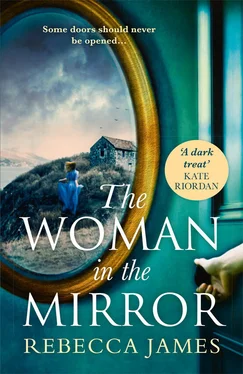
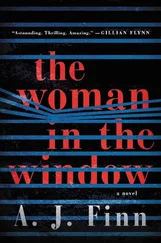


![Джеймс Чейз - The Mirror in Room 22 [short story]](/books/421068/dzhejms-chejz-the-mirror-in-room-22-short-story-thumb.webp)


